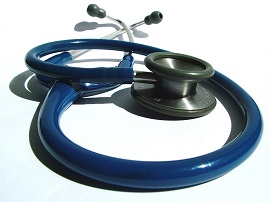In many areas of the country, central air conditioning is vital to surviving the balmy summer weather. Despite the relief offered on the hottest days, there are some health considerations you need to understand that can result from running your AC 24/7. In addition to excessive use triggering sky high utility bills, you need to ensure that your air conditioning use doesn’t affect your health.
The Potential Health Issues
Air conditioning overexposure has not been directly linked to actual illness, but constant use can contribute to some issues that could impact your health. The most obvious is indoor air pollution. Research shows that indoor air pollution can be greater than the pollution outside and if your indoor air is poorly circulated, it can create some health problems. The symptoms linked to poor indoor air include itchy eyes, nasal problems, dizziness, headaches and even difficulty breathing. In extreme cases, it can trigger an asthma attack or irritate other respiratory conditions.
You may also find that you’re suffering from coughs, colds, sore throats and irritated sinuses. Although you may put these symptoms down to a summer cold, it could be due to excessively low humidity. Air conditioning systems reduce humidity when lowering the temperature, so if your air conditioning is constantly running, the humidity may drop too low.
Safe Air Conditioning Use
The primary cause of indoor air pollution is dirt. If your system and filters are dirty, when you run your air conditioning for prolonged periods, you suffer greater exposure to these allergens and contaminants. Dirty filters will allow pesticides, pollens and other outdoor pollutants to accumulate inside your home. If your vents and ductwork are unclean, this can further exacerbate the problem. Fortunately, you can address these issues to ensure that you enjoy safe air conditioning use.
The first thing to address is the filters. Most manufacturers recommend cleaning or replacing air conditioning filters every 4 to 6 weeks, but you’ll find instructions for your specific system in your owner’s manual.
You should also have an annual check. An experienced HVAC service technician can perform regular maintenance to ensure that your system is operating at peak efficiency. If your ductwork has been neglected for a while, you may need to have the technician inspect for leaks and clean the ducts.
You also need to ensure that your home is adequately ventilated. Although it may be warm outside, you need to occasionally open up the windows and switch off the AC. This will bring some fresh air into your home and help air circulation.
Finally, to reduce use and bring down your energy costs, you should use a programmable thermostat. This will allow you to turn the system off or down at night and when the house is empty. A smart thermostat can monitor your typical behaviors and adjust the system accordingly. This will lower circulation of any potential harmful particles in your indoor air.
If you have concerns about the safety of your air conditioning system, it is important to have it checked by an experienced HVAC specialist. A professional technician can inspect your system and recommend ways to boost efficiency, performance and air quality.
